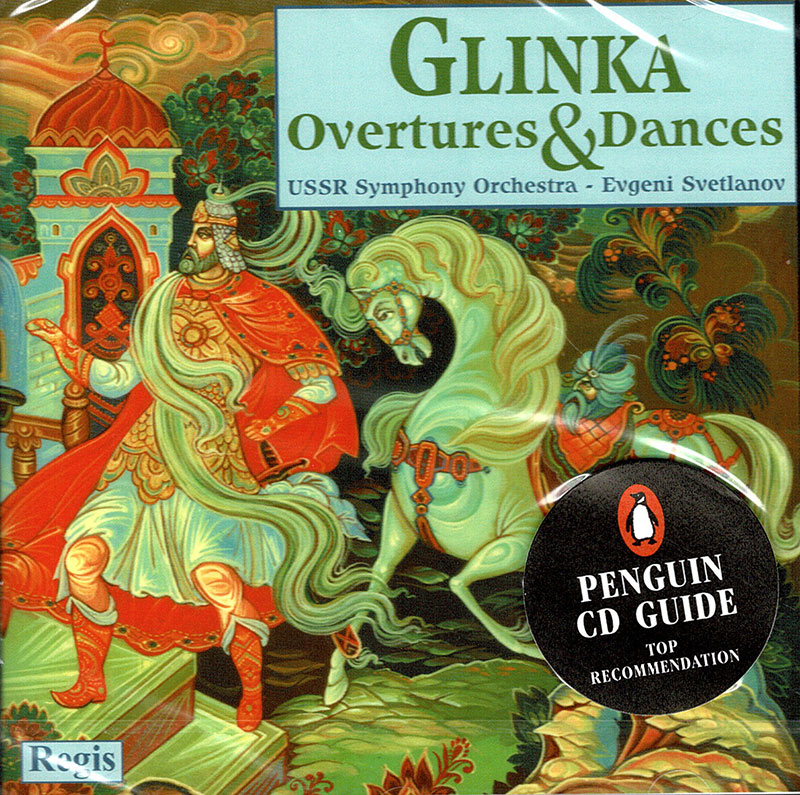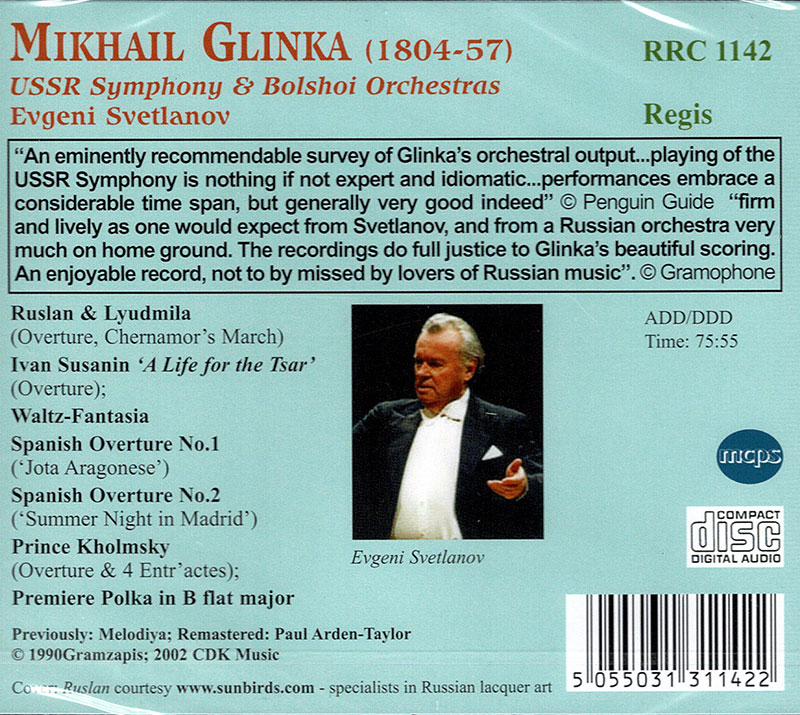Logowanie
Dziś nikt już tak genialnie nie jazzuje!
Bobby Hutcherson, Joe Sample
San Francisco
SHM-CD/SACD - NOWY FORMAT - DŻWIĘK TAK CZYSTY, JAK Z CZASU WIELKIEGO WYBUCHU!
Wayne Shorter, Freddie Hubbard, Herbie Hancock, Ron Carter, Elvin Jones
Speak no evil
UHQCD - dotknij Oryginału - MQA (Master Quality Authenticated)
Chesky! Niezmiennie perfekcyjny
Winylowy niezbędnik
ClearAudio
Double Matrix Professional - Sonic
najbardziej inteligentna i skuteczna pralka do płyt winylowych wszelkiego typu - całkowicie automatyczna
GLINKA, USSR TV and Radio Symphony Orchestra, Evgeny Svetlanov
Overtures & Dances

- USSR TV and Radio Symphony Orchestra - orchestra
- Evgeny Svetlanov - conductor
- GLINKA
Glinka was a self-taught musical dilettante, though in his time his talents earned him international stature: Tchaikovsky once described him as 'the acorn from which the oak of Russian music sprang'. Glinka studied in Italy for three years from 1830, meeting Bellini and Donizetti, and then moved on to Berlin for further studies on his way home. As result he was aware of a wide range of western styles, and became highly skilled in the techniques of composition. This generously filled compilation covers the range of Glinka’s achievement as a composer of orchestral music. After the removal of his opera Ruslan and Lyudmila from the St Petersburg repertory after 1842, he turned instead to composing shorter pieces, particularly for orchestra, which therefore makes this collection more valid still. The recordings have been taken from a period of more than twenty years, although all of them are at least acceptable, and the more recent ones are much better than that. Svetlanov was one of the great conductors of recent times, always capable of producing a vivid performance. His directness and commitment come across strongly in the two items from the opera Ruslan and Lyudmila, recorded with the Bolshoi Theatre Orchestra in the early 1960s. While the sound is not sophisticated the performances are very direct and exciting, with a strong dynamic range and a rhythmic bite that suits the music very well. Svetlanov also makes the most of the colourful Spanish Overtures that followed Ruslan in the 1840s. If his interpretation of the first of these, based on the jota aragonesa that also inspired Liszt’s Rapsodie Espagnol, is somewhat ‘over the top’, the vitality of the music-making remains compelling. The recorded sound from the late 1960s is equally colourful, though the perspectives are rather larger than life. The arrival of the inevitable castanets, for example, is emphatic in the extreme, though things do settle down in the later stages. All Svetlanov’s performances have an authentic feel, and he has a sure touch also in the slighter pieces such as the sequence of movements that served as incidental music to Nikolai Kukolnik’s tragedy Prince Kholmsky. This music benefits also from the best recorded sound, as it should with the more recent vintage of 1984. Congratulations to Regis for the standard of presentation. Not only is the booklet beautifully presented, clearly printed and well edited, it has the benefit of excellent and informative notes by James Murray. Terry Barfoot https://www.musicweb-international.com/classrev/2003/Oct03/Glinka_overtures.htm


































